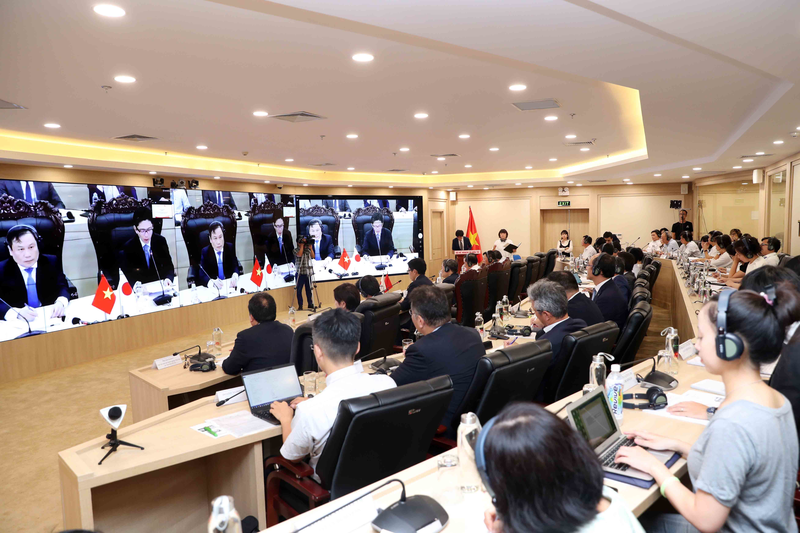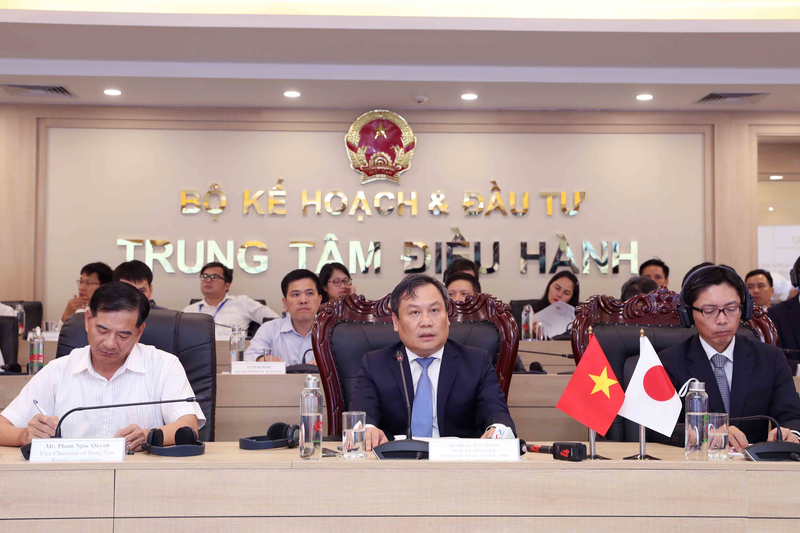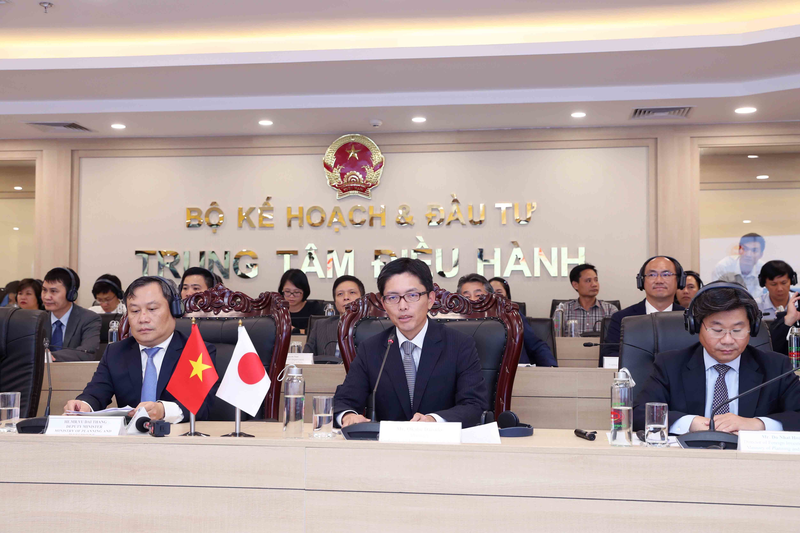1,000 Japaneses firms looking for investment opportunities in Vietnam
While countries across the world are still in the fight against Covid-19, Vietnam has resumed business as usual and become one of the first countries to diversify the supply chains.
Over 1,000 Japanese firms from all over the world participated in an online conference promoting investment between Vietnam and Japan on July 9.
| Overview of the online conference. Photo: MPI. |
The event was jointly held by Vietnam’s Ministry of Planning and Investment, the Japanese Embassy in Vietnam, Japan External Trade Organization (JETRO), and Japan Bank for International Cooperation (JBIC).
Being the first large-scale investment promotion event held online, the broad participation of Japanese firms demonstrated their huge expectations and interest in doing business with Vietnam, said Vice Minister of Planning and Investment Vu Dai Thang at the conference.
With the successful containment of the Covid-19 pandemic, Vietnam proved to be a safe and attractive investment destination for international investors, Thang said, adding the country is among a handful worldwide recording positive economic growth in the first six months of this year.
| Vice Minister of Planning and Investment Vu Dai Thang. Photo: MPI. |
Although foreign direct investment (FDI) around the globe may decline by 40% this year due to the Covid-19 crisis, FDI commitments to Vietnam during the January – June period remained positive at over US$15 billion, down 15% year-on-year. This included US$8.43 billion for fresh projects and US$3.72 billion of additional capital for existing ones, up 13.8% and 26.8% year-on-year, respectively.
At present, Vietnam is home to 32,000 projects with registered capital of a combined US$378 billion from 136 countries and territories, among which Japan is the second largest investor with over US$60 billion, Thang informed.
In a pre-Covid-19 study conducted by the US News & World Report, Vietnam overtook regional peers in Southeast Asia, including Malaysia, Indonesia and Singapore to rank eighth among the world’s leading 29 countries to invest in, up from 23rd out of 25 countries in 2018.
Meanwhile, a survey from JETRO in February showed over 63% Japanese businesses in Vietnam were planning to expand investment, the highest rate in ASEAN and the third in the Asia – Pacific region.
Thang said Vietnam is committed to perfecting its legal framework and improving efficiency in international cooperation to attract more FDI, focusing on high quality, environmentally friendly and hi-tech projects.
The Vietnamese government would give priority to projects with modern and clean technologies having high-added value, which could aid local firms to further integrate into global supply chains, Thang stated, highlighting these are the advantages of Japanese firms.
| Minister Daisuke Okabe (middle) from the Embassy of Japan in Vietnam. Photo: MPI. |
Minister Daisuke Okabe from the Embassy of Japan in Vietnam said while countries across the world are still fighting Covid-19, Vietnam has been on the economic recovery track and become one of the first countries to diversify the supply chains.
As international investors, including from Japan, are looking at Vietnam as a potential investment destination in the post-Covid-19 era, Okabe expected Vietnam to grasp this opportunity for further development.
Okabe suggested four points that the Vietnamese government should focus on to boost cooperation between Vietnam and Japan. They are the reopening of borders between the two countries; speeding up disbursement for public investment projects; promoting FDI attraction, especially in the context of Japanese government providing a US$2.3 billion aid package for Japanese firms to diversify their supply chains; and improving Vietnam’s credit rating and addressing the issue of slow disbursement.















